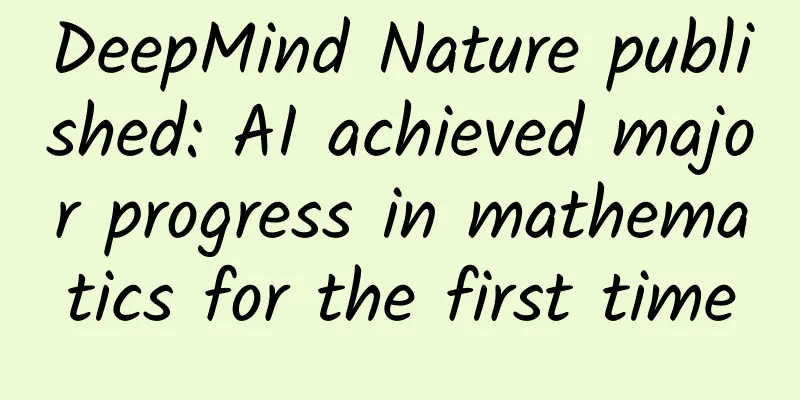WOT2018 Wang Xiaobo: The "Phoenix" model of cache management, you deserve it
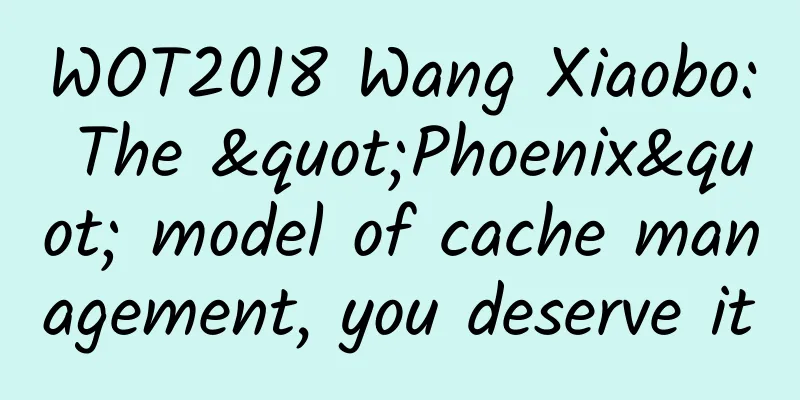
|
【51CTO.com original article】Seven years of hard work, a gorgeous transformation. Since 2012, 15 summits have been held for 6 consecutive years, bringing together a large number of technical experts, learning from a wide range of knowledge and making a breakthrough. The 2018 WOT Global Software and Operation Technology Summit has set sail, focusing on 12 core hotspots, bringing together 60 first-line experts from home and abroad to create a high-end technology feast! On the second day of the conference, on the afternoon of May 19, at the "High Concurrency and Real-time Processing" forum, Tongcheng Travel Chief Architect Wang Xiaobo will give a keynote speech, focusing on cache management issues in high-concurrency scenarios. 51CTO reporters interviewed him before the meeting and asked him to "spoil" the exciting content of the speech in advance. Two major killers of cache system crashes Wang Xiaobo introduced that the reason why he would focus on sharing the cache system crash problem in high-parallel systems is because most of the cache system crash problems are not caused by insufficient performance of the cache system itself, but because of the indiscriminate and mindless use of the cache in various systems. What is indiscriminate use of cache? Wang Xiaobo explained that this refers to using the cache in a hodgepodge manner without analyzing and isolating the usage scenarios and cached data. This will cause a cache system to face multiple concurrent requirements of high, medium and low levels, and the data stored in a cache system will be a variety of large, medium and small data types. Finally, the cache users will be N kinds of unknown system calls, making it very difficult to downgrade. So what is mindless use? This means that the use of cache does not distinguish between caching and storage, and the use of cache is blindly silver-bullet, thinking that as long as it is used, high concurrency will be achieved. In such mindless use, the cache sometimes becomes a database, and sometimes the cache loses its distributed ability because of the strong use of a single point. The silver-bullet cache also makes the cache do more things it should not do. The solution to the above problems is cache governance. Wang Xiaobo summarized the audience's gains into three points: first, understand how to make the cache more concurrent; second, learn how to use the cache well and use it correctly; third, understand how to make the cache problem invisible through governance. For many people, these three gains will be real dry goods, which can be regarded as a practical guide for high concurrency. Interested netizens should sign up quickly! There are not many places left! Let cache management enter the "Phoenix" mode When asked about the fundamental reason for the high concurrency scenario, Wang Xiaobo told the reporter that the solution to high concurrency is a systematic project, in which the storage of data, data calculation and other data I/O are a very important reason for the system to be unable to have high concurrency. "To solve the problem of data I/O speed, the simple method is to temporarily store the calculation results. Such temporary storage is called cache. Because the result set is directly retrieved and the retrieval method also uses a faster method such as KV, the high concurrency of the system is naturally alleviated." Wang Xiaobo said. In terms of practice, Tongcheng Travel also has a lot of experience to share. The reporter learned that Tongcheng Travel has been trying high-concurrency cache management for a long time. They have collected all the points to be achieved into a set of cache systems called "Phoenix", which is a cache private cloud, which can be used in a black-box way and manage cache without any impact on the application system. Wang Xiaobo revealed that before the implementation of cache governance, the cache system was used in a disorderly and miscellaneous manner, which was often a nightmare for the system. However, after the governance, the cache is basically a Phoenix-like system because of the correct usage, isolation of usage scenarios, reasonable allocation of data volume, and separation of buffer storage. He gave an example to the reporter, saying that before, he often found some caches with extremely large storage capacity, many of which were over terabytes. He took a closer look at the content and found that it was not data from the same scenario or the same type of data. There were also systems with little correlation between users. He even found that a KEY stored 20G of data, and a small failure basically ruined it. After governance, it was naturally resolved. Of course, this governance was imperceptible to the application system. Three difficult barriers to bypass In fact, cache management is not always smooth sailing, and Tongcheng Travel has also encountered some difficulties. Wang Xiaobo said that the difficulties are mainly concentrated in three aspects: The first is how to make the application use cache reasonably without being noticed, because before it relied more on programming specifications and design specifications, but these are subjective requirements that are all people-oriented, and the results often vary from person to person, so Tongcheng Travel's approach is to use a system to solve the problem without specifications. Second, how to migrate the existing cache that is being abused. Because this is an online operating system, it may be very fragile. In this case, Tongcheng Travel finally developed a dedicated migration system to handle it. The third question is about the cache R&D plan. Should they choose self-development or open source? In the end, they chose system platform development based on open source. At the end of the interview, Wang Xiaobo told the reporter that in addition to exploring performance, cache processing should also explore costs. Because caches are now used in various systems, usually these caches need to occupy a lot of memory. As we all know, the cost of memory is very high, so how to reduce the use of memory, or not use memory in some scenarios, this value point is worth exploring. On May 18-19, the world's most noteworthy IT technology feast will be held at Beijing JW Marriott Hotel. The 2018 WOT Global Software and Operation Technology Summit will definitely be an important platform for you to discover new ideas, explore the latest thoughts, and expand your network. At present, all our tickets are on sale. Please note that the earlier you buy your tickets, the bigger the discount! Communicate with KOLs up close and present a different "hero feast"! Click on the official website for details: wot..com 10% off pre-sale, grab your tickets as soon as possible. [51CTO original article, please indicate the original author and source as 51CTO.com when reprinting on partner sites] |
<<: Understanding the differences between 5G and Gigabit LTE
>>: What is number portability? What are the benefits? Is it necessary to port your number?
Recommend
Tencent Cloud Flash Sale: 1C2G5M=488 yuan/3 years, 1C1G3M=268 yuan/3 years, available in Shanghai/Beijing/Guangzhou/Chengdu
Tencent Cloud's long-term flash sales activit...
CloudSilk: Hong Kong Triple Network CMI Line High Bandwidth VPS Annual Payment Starting from 288 Yuan
CloudSilk is the original idc.best. The blog shar...
MIIT releases 5G spectrum planning, China launches mid-band 5G commercialization
On November 15, the Ministry of Industry and Info...
NVIDIA Launches 6G Research Cloud Platform to Advance Wireless Communications with AI
NVIDIA today announced a 6G research platform tha...
Ramnode promotional VPS hosting starts from $12 per year, 5 data centers available in Los Angeles/Seattle
The last time I shared news about Ramnode was in ...
Telecom APIs: A critical IT tool for expanding services and improving customer experience
In recent years, enterprise communications have u...
Maxthon Hosting: VPS in Hong Kong Cera Data Center starts at 40 yuan per month, and Hong Kong CN2 line starts at 60 yuan per month
Maxthon Hosting has long provided 20% discount co...
South Korea's ICT exports hit record high in first half of the year
According to Yonhap News Agency, the Ministry of ...
Linkerd 2.10 (Step by Step)—Install Multi-Cluster Components
[[406693]] The Linkerd 2.10 Chinese manual is bei...
What is the difference between 5G and 5GHz Wi-Fi?
Are 5G and 5 GHz Wi-Fi the same thing? No, but te...
80VPS: Special VPS starting from 199 yuan per year, Hong Kong/Korea server starting from 350 yuan/month, 237IP cluster server starting from 800 yuan/month
80VPS is a long-established Chinese hosting compa...
7 excellent open source network monitoring tools
Network health is a measure of the health of the ...
5G accelerates cloud-network integration
What is cloud computing? Different companies have...
Wang Xijie, CEO of Yunfan Accelerator: Deeply cultivating network transmission and adhering to the "exquisite" route
[51CTO.com original article] As 2017 enters the c...
Perhaps it is easier to understand HTTPS this way
We won’t talk about HTTP and HTTPS first. Let’s s...

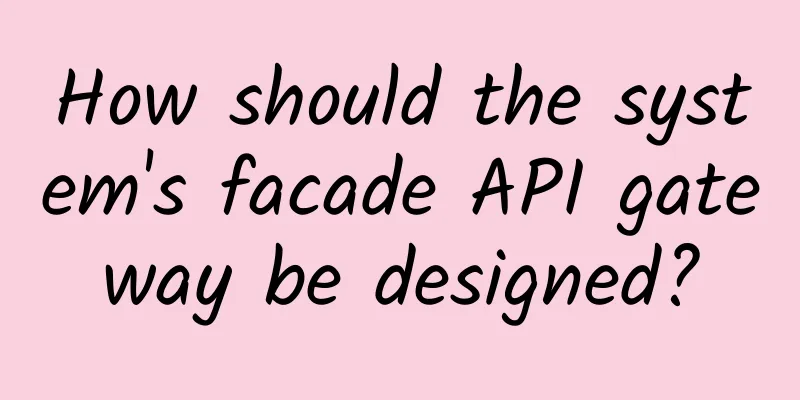
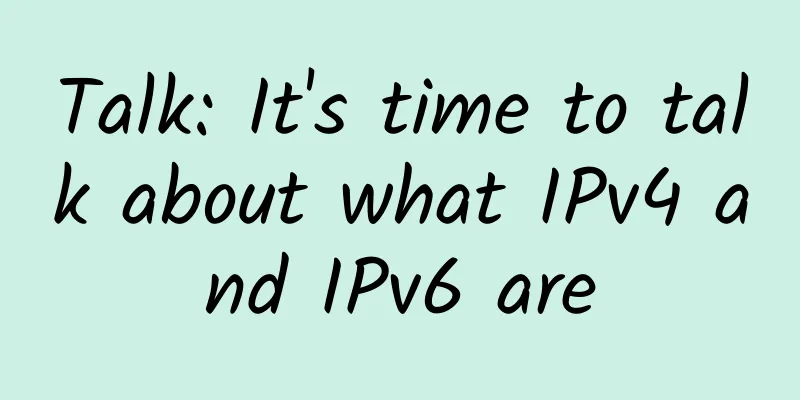


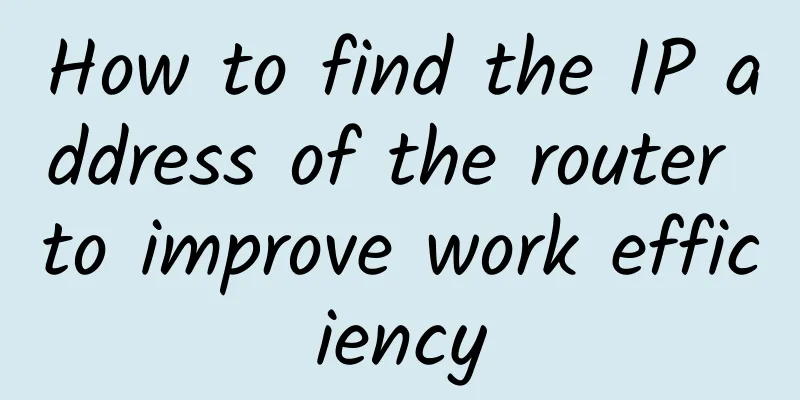

![[11.11] Yecao Cloud: Hong Kong BGP network VPS annual payment starts from 83 yuan, Hong Kong international line annual payment starts from 79 yuan, Hong Kong independent server starts from 199 yuan/month](/upload/images/67cabd142d2b7.webp)

